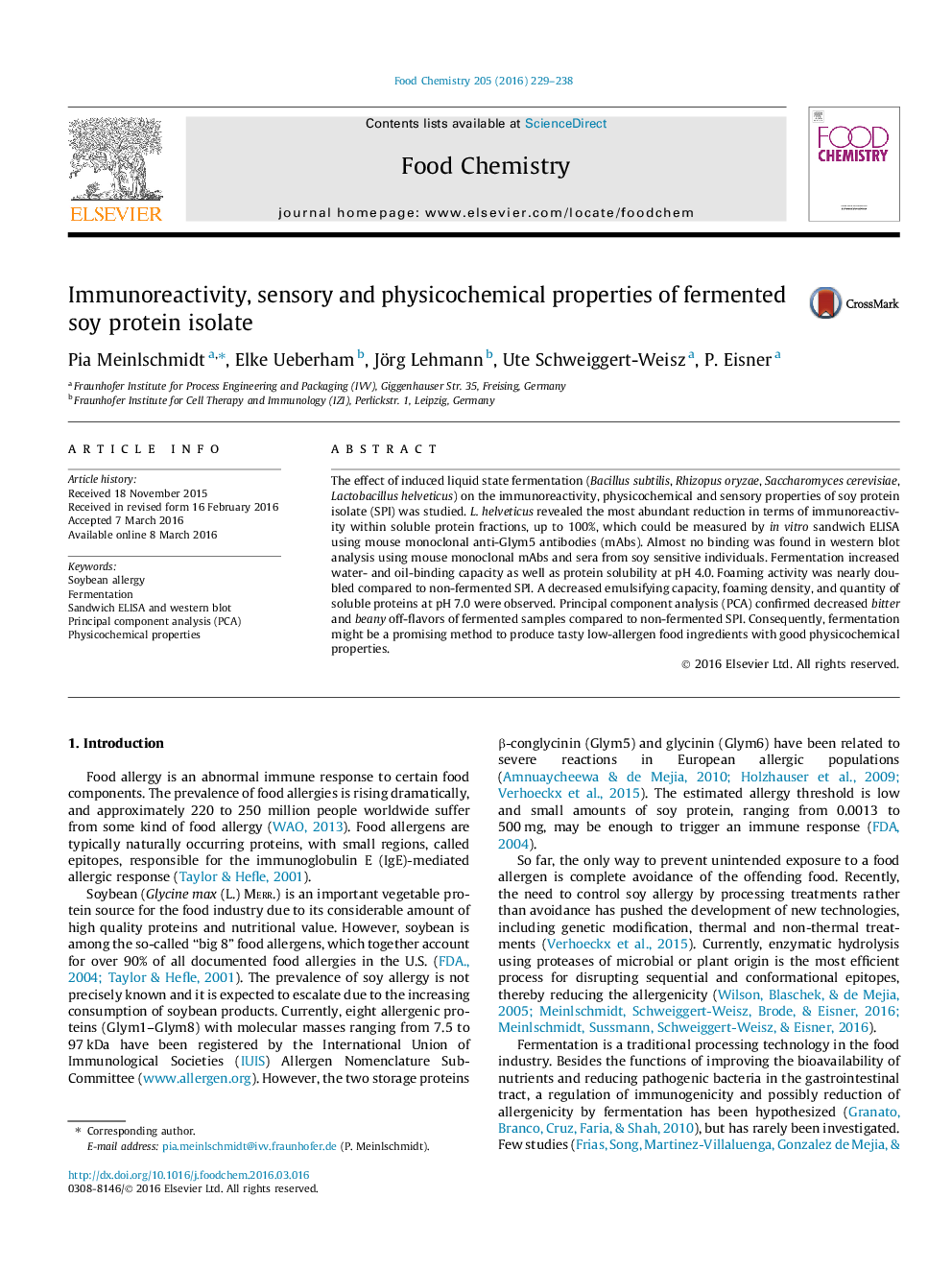| Article ID | Journal | Published Year | Pages | File Type |
|---|---|---|---|---|
| 1183997 | Food Chemistry | 2016 | 10 Pages |
•Effect of liquid-state fermentation on potential soy allergenicity was studied.•Sandwich ELISA with monoclonal anti-Glym5 antibodies (mAbs) was used.•Western blot was performed using mouse mAbs and sera from soy sensitive individuals.•Fermentation with Lactobacillus helveticus reduced IgE-binding up to 100%.•Beany and bitter off-flavors were considerably reduced following fermentation.
The effect of induced liquid state fermentation (Bacillus subtilis, Rhizopus oryzae, Saccharomyces cerevisiae, Lactobacillus helveticus) on the immunoreactivity, physicochemical and sensory properties of soy protein isolate (SPI) was studied. L. helveticus revealed the most abundant reduction in terms of immunoreactivity within soluble protein fractions, up to 100%, which could be measured by in vitro sandwich ELISA using mouse monoclonal anti-Glym5 antibodies (mAbs). Almost no binding was found in western blot analysis using mouse monoclonal mAbs and sera from soy sensitive individuals. Fermentation increased water- and oil-binding capacity as well as protein solubility at pH 4.0. Foaming activity was nearly doubled compared to non-fermented SPI. A decreased emulsifying capacity, foaming density, and quantity of soluble proteins at pH 7.0 were observed. Principal component analysis (PCA) confirmed decreased bitter and beany off-flavors of fermented samples compared to non-fermented SPI. Consequently, fermentation might be a promising method to produce tasty low-allergen food ingredients with good physicochemical properties.
